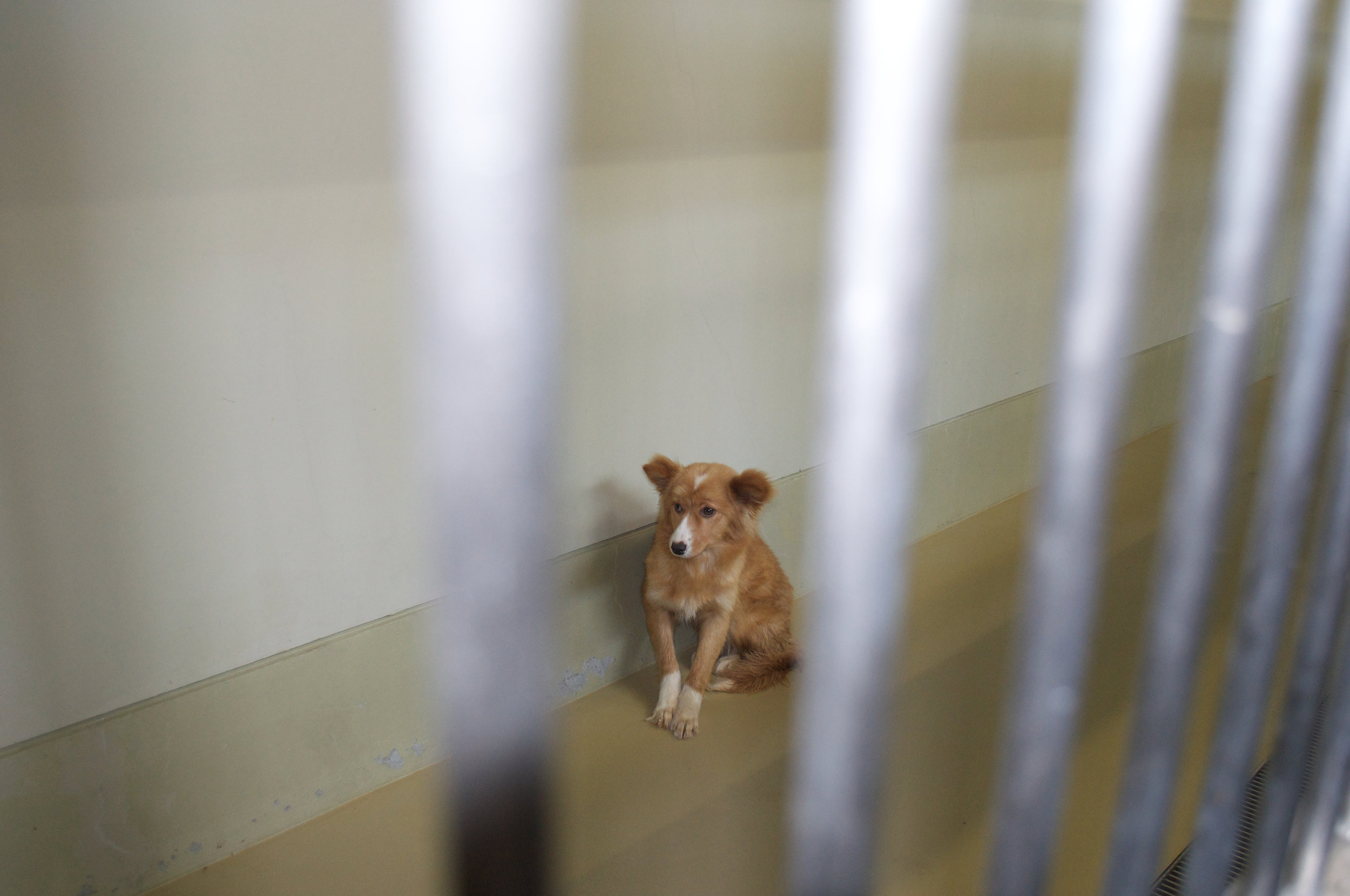Montréal’s move to repeal its ban on one of North America's most controversial canines marked the onset of progress for animal welfare activists and the dogs themselves.
A revision of laws surrounding "dangerous" dogs, like the pit bull breed, was in legislation and is set to be reviewed by 2018 with the general public's safety in mind.
Despite these strides, the recent, tragic mauling of a Montréal woman led to an abrupt decision that would have resulted in the mass euthanization of approximately 7,000 pit bulls, including those belonging to pet owners.
Photo: Pam Forster
Defending animal welfare continues to plague animal rights activists around the world, who believe there is another method to mitigating violence against breeds who have been categorized as unfit for domestic companionship. The sad reality is that for most "ill-behaved" dogs, the sharp tip of a needle is the final leg of their journey.
Photo: Pam Forster
Animal rights shelter HEART, based in Tokushima, Japan is one non-profit that is committed to giving unwanted, or misguided domestic animals a second chance at life and love. For this animal welfare group, euthanasia is taboo. Instead, alternative measures are taken to ensure that as many unwanted dogs as possible get re-homed, while they endure compassion and behavioural training along the way.
Founders of HEART.
Photo: Pam Forster
HEART has garnered attention for advocating animal rights and welfare in Japan, and their anti-euthanasia stance on unadopted animals is making waves. HEART's euthanasia ban has made the non-profit the only organization to implement this policy in their vicinity. Taking into consideration the fact that many Japanese shelters put down a staggering rate of 90% of their unadopted animals, HEART is truly an important organization to the individuals and animals who face limited options. More often than not, irresponsible human behaviours, like questionable training methods or a disregard of spaying and neutering is to blame for the rise in unwanted animals.
Photo: Pam Forster
Co-founded in 2006 by Susan Mercer and Hitoshi Tojo, the duo truly put their backs into their work. With full-time hours, sometimes clocking in over twelve-hour days, Mercer and Tojo rely on the help from a few paid employees, as well as a steadfast team of passionate weekend volunteers.
Photo: Lais Viera
With a tremendous percentage of Japan’s unwanted animals being scheduled for euthanasia, more methods of implementing harm-reduction strategies are required. This is attained in several ways. Through educating the public on animal rights issues, advocating for the spaying and neutering of animals, and even rolling up their own sleeves and helping spay animals themselves, HEART’s team has become the gleam of hope for many animals who's fate would have otherwise ended on an operating table. To date, the organization has rehomed hundreds of formerly rejected animals and helped them become members of loving families.
Photo: Pam Forster
Mercer credits the assistance of PWB photographers Pam Forster and Lais Vieira and the attention their images helped to advocate. “Since Photographers Without Borders has been here, we have built new, more spacious kennels to replace some of our older housing," Mercer said. "We have also achieved this through grants from companies and crowdfunding efforts.”
HEART's main goal has been the improvement of its internal operations, and the organization plans to expand its outreach to help even more animals. Mercer has since been certified as a professional dog trainer, and is in the midst of implementing a shelter training and enrichment programs to improve the animals' quality of life.
Adopted.
Photo: Pam Forster
Mercer explains that the organization shows no signs of slowing down. “We will continue with our rescue and re-homing efforts, but hope to expand our community outreach programs through children's humane education lessons and various other events and seminars,” Mercer said.
Photo: Lais Viera
Latest articles
You will also like














